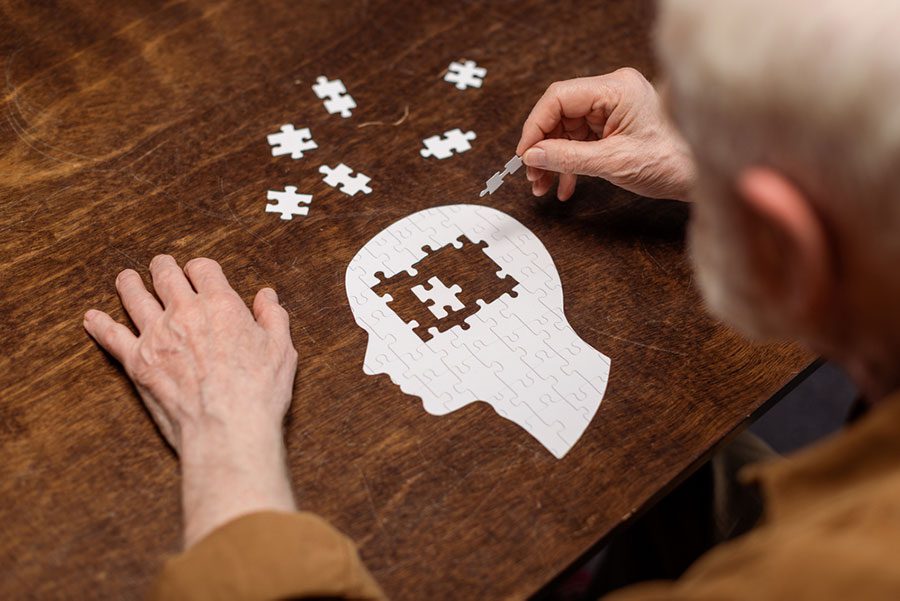
How Addiction Hijacks The Brain
Drug addiction, a chronic disease medically referred to as substance use disorder, can be both baffling and devastating both to a drug addict themselves and to anyone who cares about them. However, understanding how drug addiction hijacks the brain can be critical to understanding why addiction exerts such a devastating influence on people with substance use disorders.
This essay will explain the basics of how addictive drugs work to rewire the brain and why it can be so difficult for someone with addiction to stop using drugs despite the obvious negative consequences their addiction is causing to them or their loved ones, as well as information about how our treatment program can help combat these effects.
Addictive Substances And The Brain’s Reward System
Basically, addictive drugs work by taking over the brain’s system for reward related learning. A cluster of nerve cells lying underneath the prefrontal cortex, known as the nucleus accumbens, is the brain structure most involved in this process. The brain includes areas involved in rewarding activity like these because they are involved in sustaining life by facilitating behaviors that promoted human survival, such as when a person eats or during a sexual encounter.
This rewarding behavior promotes dopamine release, and so the neurotransmitter dopamine is known as the chemical of reward. Dopamine interacts with other brain circuits to facilitate learning, driving the person to repeat behaviors that the person finds rewarding because they produce pleasure. However, because drugs causing addiction work by exerting a stronger dopamine signal than these natural rewards, an addictive substance can influence the learning process mentioned earlier to encourage drug abuse.
The brain responds to a psychoactive drug with a disproportionate amount of dopamine, so an addictive drug causes such intense stimulation that it exerts an unusually long and powerful influence on brain activity. Given repeated drug misuse, the brain adapts to regular intake of addictive drugs. It will produce less dopamine as a baseline, or will get rid of some of its dopamine receptors to accommodate for drug use, which is known as “down regulation” of these receptors.
Since an addicted brain is accustomed to having a regular infusion of the sought after substance, it cannot function normally without that substance. This decrease in brain receptors means that people with addiction typically find that they do not experience as much pleasure as they once did from non-drug activities. It also means that they experience unpleasant withdrawal symptoms whenever they stop taking the drug.
The specific withdrawal symptoms that they experience will depend on what drug they have been taking, with “crashes” from stimulant drugs usually manifesting as depression and fatigue and withdrawal from depressant drugs more often resulting in symptoms like anxiety and insomnia.

However, just about all forms of withdrawal are defined by an intense craving to reengage in drug use. Thus, people with addiction risk relapse in part because of this change in brain function, as these cravings contribute to drug seeking.
Often, when people with addiction abuse alcohol or drugs, they are just trying to feel normal and avoid withdrawal rather than to get “high,” which is why they continue their drug use despite adverse consequences. This is particularly true of the opioid pain relievers, which are known to cause a particularly powerful surge of dopamine when they are used and especially unpleasant withdrawal symptoms when their use is stopped or reduced.
Over time, as the brain continues to adapt to repeated intake of the same drug, addictive behaviors can also become automatic behavior, something that a person does without even thinking about it, as second nature as breathing or eating.
At this point, it would probably take a serious mental health intervention to treat addiction and put the vicious cycle to an end. Even then, a small trigger may be enough to spur a former addict back into drug use as the brain registers the cue as a sign that a rewarding dopamine rush may be nearby, which in turn can trigger renewed cravings.
Recent research suggests that the cerebral cortex of people who have developed addictions to things like gambling or sugar show similar changes to the ones found in a person addicted to other drugs. While some people are hesitant to consider behavioral addictions like these to be “true” addictions as serious as those caused by drug use, the devastating financial and health consequences of such addictions for many people suggests otherwise.
For instance, many people with sugar addictions are only motivated to cut back after diabetes impairs their ability to physically process it, when irreversible damage to their body has likely already been done. Both sugar and more typical drugs of abuse can have negative effects on health due to their ability to dangerously raise blood pressure, which can cause lasting damage to the cardiovascular system. If cardiovascular disease damages the heart severely enough, death can result, and similar outcomes can occur with drug-induced damage to other organ systems, such as in alcohol induced dementia or cirrhosis.
Help For Drug Addiction At Reco Intensive
While primitive approaches to drug addiction involved punishing miscreants for their “misbehavior,” now that we have evolved enough to understand addiction as a psychological disorder rather than an issue of morality, we can understand substance abuse as the complex mental health problem it is. Understanding how addiction hijacks the brain is part of this process, but it doesn’t mean that you have to let addiction hijack your life.
At Reco Intensive, experts on overcoming addiction can help you to reboot your life with scientifically backed therapy programs as well as holistic treatment options designed to help recovering addicts find the joy in activities besides drug use. We will also help our clients to learn healthier coping mechanisms that they can use instead of resorting to their desired substance as a crutch to deal with life’s travails.
Over time, and given continual abstinence from drug use and continual engagement in recovery, the brain will begin to rewire itself and to return to a state closer to baseline. To learn more about our intensive outpatient programs and how we can help get you or a loved one back on the road to a brighter future, feel free to call us anytime at 561.464.6505 or to contact us online anytime here.